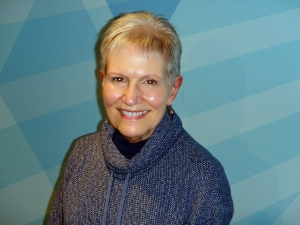news article
Recognizing your white privilege
February 15, 2021 / By Georgia Whitney, Conference Commission on Religion & Race
Last week, I described what white privilege means and what disadvantages People of Color have because of their skin color. Click here to read that article.
What's a white person to do once they recognize their privilege? I'm reminded of the words of the late poet Maya Angelou: "Do the best you can until you know better. Then when you know better, do better."
- When you hear the term "white privilege, don’t take it personally or use discomfort as an excuse to disengage. Feelings of guilt or defensiveness are common
 responses, but they’re counterproductive. White people living today did not create this system. We were born into it, but when we understand it, we can help to change it. Instead of seeing your own discomfort, put the focus on what people of color might be feeling.
responses, but they’re counterproductive. White people living today did not create this system. We were born into it, but when we understand it, we can help to change it. Instead of seeing your own discomfort, put the focus on what people of color might be feeling. - Learn when to listen, when to amplify, and when to speak up. When People of Color speak to their experiences of oppression, it’s important that white people not challenge those experiences. It's time to sit back and listen. Next, use your privilege to amplify those voices by sharing the work and perspectives of People of Color. Credit colleagues of color for ideas. As far as speaking up, don't burden People of Color by making them take the lead on anti-bias work or intervening when something offensive is said or done. If you hear racist remarks, say something.
- Educate yourself. Just as you should not always expect People of Color to take the lead on speaking out against racism, you also shouldn’t expect them to educate you on racism. While it’s okay to ask questions of those who have expressed a willingness to answer, you have the power to educate yourself. Of course, one very good way is through the Imagine No Racism Small Group Curriculum. You can find out more about it on the CCORR website.
- Keep educating yourself. Read books. Watch videos. The CCORR website's resource list is a comprehensive guide to studies, podcasts, websites, movies, TV programs and films—as well as a long list of books and videos.
- Educate other white people. If you see opportunities to educate fellow white people about race, do so. Share what you’ve learned. Have courageous conversations in your circles. Do not let peers get away with problematic remarks without making a serious effort to engage them.
- Risk your unearned benefits to benefit others. You may have seen a viral video featuring author Joy DeGruy talking about her biracial sister-in-law using her white privilege to question why Joy was receiving undue scrutiny from a grocery store cashier. Dr. DeGruy's sister-in-law risks her own comfort and her easy transactions with the store to point out this unfairness and ultimately receives support from witnesses and management.
One final point. Take it from this white lady: understanding and recognizing white privilege, and knowing how to address it, is a long process. It took me decades to get to the point of understanding my privilege, and my transformation won't happen overnight. When I get discouraged, I turn to friends who understand my journey. One wise woman recently reminded me to embrace the small steps I'm taking. Then she pointed me towards scripture—specifically, Galatians 6:9. I especially like The Message's version:
So let’s not allow ourselves to get fatigued doing good. At the right time we will harvest a good crop if we don’t give up, or quit. Right now, therefore, every time we get the chance, let us work for the benefit of all. . .
Yes, the work is hard and training, but ultimately, it's about working for the benefit of all. If we want to live in a truly just society, we all need to support each other in the fight for equality. As a white woman, I naturally fight sexism, but racism, classism, and ableism are in my sights as well. I know we won’t achieve full equality by merely focusing on our own struggles and ignoring causes that don’t seem to involve us. As Nelson Mandela said, “To be free is not merely to cast off one’s chains, but to live in a way that respects and enhances the freedom of others.”